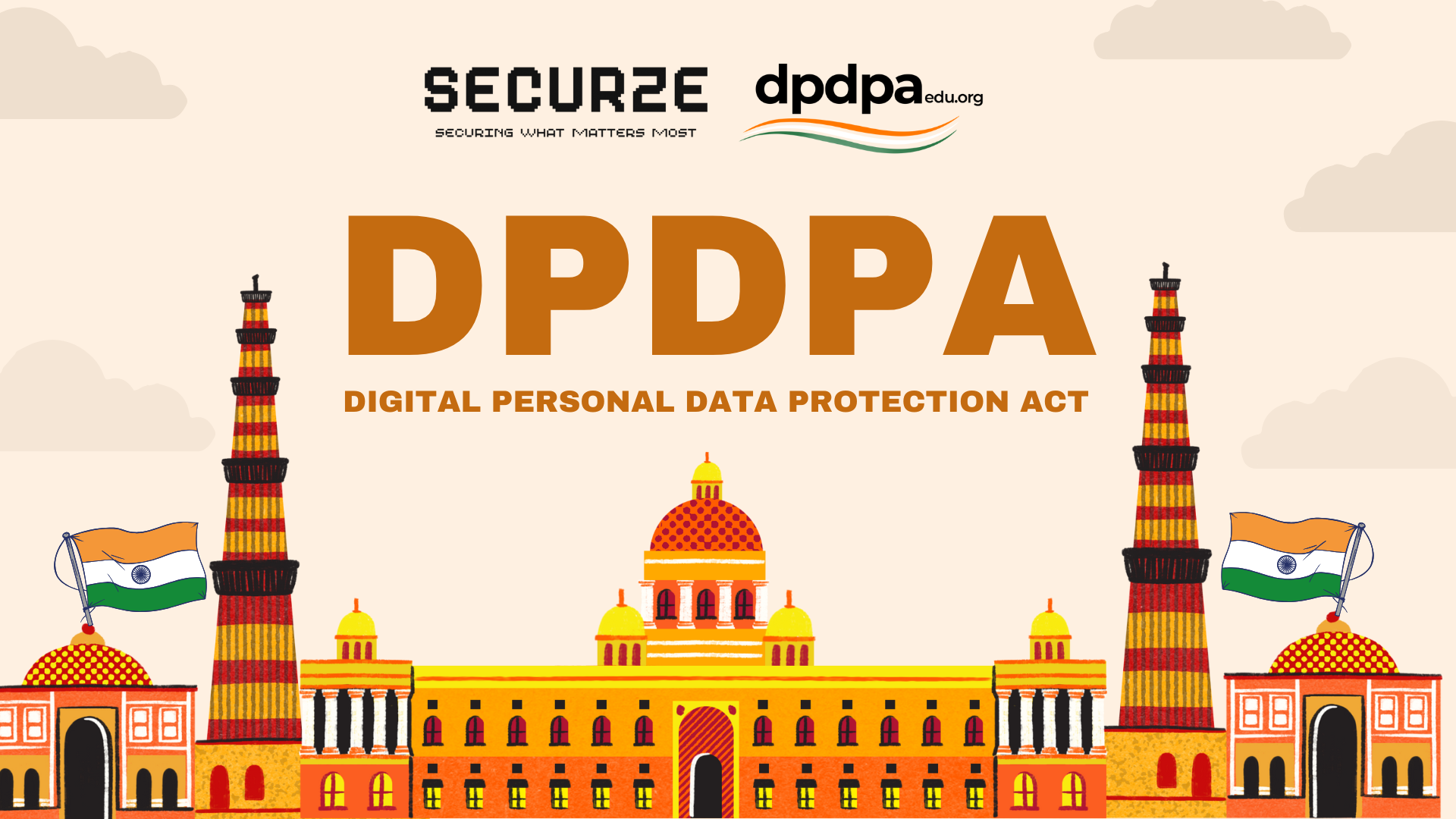Background and Purpose of DPDPA

The Digital Personal Data Protection Act (DPDPA), 2023 represents India’s first comprehensive framework dedicated to safeguarding the privacy of individuals in the digital age. This legislation, accompanied by the rules notified on 14th November, 2025, establishes a structured regime for how organizations, governments, and intermediaries collect, process, store, and share personal data to protect personal data and the need to process such personal data for lawful purposes. Its enactment is a direct response to the exponential growth of India’s digital economy and the increasing volume of personal information being processed on digital platforms. By codifying the responsibilities of organizations and the rights of individuals, DPDPA provides a legal foundation to ensure that privacy is not merely aspirational but enforceable.
Necessity for the Law
The necessity for this law arises from several developments over the past decade. India has seen a major rise in data breaches, cyberattacks, and misuse of personal information. These incidents have reduced people’s trust in digital services, caused many to face constant spam and harassment, and even led to financial losses for a large number of individuals. In 2017, the Supreme Court of India affirmed the right to privacy as a fundamental right under the Constitution, placing an obligation on the state to protect individuals from misuse of their personal information. With nearly a billion internet users and an economy increasingly driven by digital services, India could no longer rely on sectoral or ad hoc frameworks. DPDPA fills this void, bringing uniformity, accountability, and legal recourse into the realm of data protection.
Global Alignment
The Act and its rules are also designed to position India on the global stage. Comparable frameworks such as the General Data Protection Regulation (GDPR) 2016 in the European Union and the California Consumer Privacy Act (CCPA) 2018 in the United States have already set high standards for data governance. Without its own robust system, India risked being excluded from global digital trade conversations, cross-border data transfer agreements, and investor confidence. By enacting DPDPA, India has placed itself in alignment with international norms, assuring foreign investors and trade partners that data originating in India will be governed by transparent and reliable standards.
Purpose of the DPDPA
The purpose of the DPDPA extends beyond regulation. It aims to empower individuals, referred to as Data Principals, by granting them meaningful rights over their personal data, including the right to access, correct, erase, and withdraw consent at any time. On the organizational side, it obliges Data Fiduciaries, including both private corporations and government bodies, to process data lawfully, fairly, and transparently. Special provisions address the protection of children and persons with disabilities, while entities designated as Significant Data Fiduciaries are subject to stricter obligations such as audits, Data Protection Impact Assessments, and the appointment of dedicated Data Protection Officers.
DPDPA vs GDPR Terminologies
| DPDPA Terminology (India) | GDPR Terminology (EU) |
|---|---|
| Data Principal | Data Subject |
| Data Fiduciary | Data Controller |
| Data Processor | Data Processor |
| Data Protection Board | Supervisory Authority |
Implementation
Implementation of the Act is not optional. The DPDP Act Rules were officially released on 14th November 2025. All organizations across industries are now required to align their operations with these rules. The implementation timeline for organizations is 18 months from the date of release, while Consent Managers must comply within 12 months. For some, this will mean redesigning customer onboarding flows to ensure explicit and informed consent; for others, it will mean investing in encryption, access control, breach notification mechanisms, and governance structures. Failure to comply carries significant consequences, including penalties of up to ₹250 crore. Conversely, timely compliance will enhance consumer trust, provide a competitive advantage, and mitigate legal and financial risks.
DPDPA Rules Enforcement Timelines
| Effective Sections | Timeline | Approximate Date | Description |
|---|---|---|---|
| Section 1(2), Section 2, Sections 18–26, 35, 38–43, Sections 44(1) & 44(3) | On Gazette Publication | 14 November 2025 | Foundational provisions including definitions, duties, administrative powers, and governance structure take effect immediately. |
| Section 6(9), Section 27(1)(d) | +12 Months from Publication | 14 November 2026 | Obligations for Consent Managers and specific duties related to data transfer, reporting, and operational readiness become enforceable. |
| Sections 3–5, Sections 6(1–8,10), Sections 7–17, Sections 28–34, 36, 37, Section 44(2) | +18 Months from Publication | 14 May 2027 | Core compliance obligations for organizations: consent, notice, processing rules, data principal rights, security safeguards, breach notification, grievance mechanisms, governance, and Significant Data Fiduciary requirements become mandatory. |
Core Essence
At its core, the DPDPA is a response to the digital transformation of India’s economy and society. It is both a protective shield for individuals and a trust-building mechanism for businesses. By setting clear rules, creating a dedicated regulatory body in the form of the Data Protection Board, and aligning India with international best practices, the Act is not merely a law but a cornerstone for India’s secure digital future.
Two words to summarize - Trusted Shield -Gokulavan Jayaraman, Infosec Leader @Mahindra Group